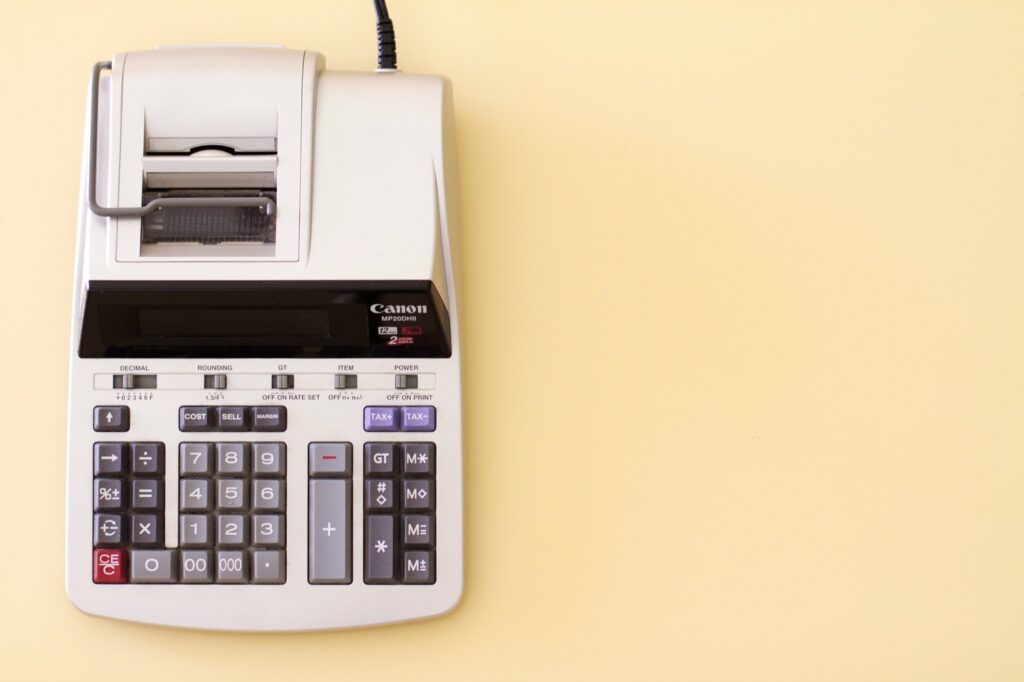Peer-to-Peer Payments and 1099k Tax Reporting Changes
Rebecca Casarez, CPA

Did you use Venmo, Zelle, PayPal, or other “peer-to-peer apps” to send and receive payments during 2022? If so, you may be surprised to learn that you might receive a tax form this year to report on your tax return.
IRS drops the threshold for all payment apps from $20,000 to $600!

The IRS has always required that payment entities report payments made to their users if they meet certain thresholds. Last year, the IRS announced that the minimum reporting threshold would drop from $20,000 in payments (or 200 transactions) to just $600 as of the 2022 tax year.
This would mean that if you sent or received any amount(s) over the $600 threshold, you would receive a 1099-K to report on your tax return, including all non-taxable transactions, such as reimbursing your friends and family for personal expenses via Venmo, Zelle, Cash App, etc… More on this issue later…
The IRS recently released, however, Notice 2023-10, which delays the change until the 2023 tax year. This means that payment processing entities do not have to comply with this new threshold until the 2023 tax year.
In other words, facilitators of these transactions (like Venmo) do not have a requirement to lower their threshold for 2022 – the reporting threshold remains $20,000 and 200 transactions. However, the delayed change was not released until late in 2022 and we speculate that most entities will still send out 1099-Ks under the new threshold.
Why lower the reporting threshold?

Form 1099-K is how the IRS tracks “Payment Card and Third Party Network Transactions.” The form applies to debit/credit card companies as well as entities such as Venmo that facilitate payments between buyers and sellers.
When the total annual payment amount or number of transactions for a given user reaches a certain threshold, then the company is required to report the income by filing the form with both the recipient and the IRS.
This helps the IRS ensure you are reporting all your income. By reducing the reporting threshold as of tax year 2023, the IRS says it is “improving voluntary tax compliance.”
Although some states use a lower figure to trigger the 1099-K requirement, both Arizona and California follow the IRS guidelines.
This issue affects both business and personal transactions

Reporting applies to payments received for the sale of goods or services. That could mean a product or service your business provides. Or, it could mean all that stuff you sold via Craigslist or a yard sale if you used Venmo, PayPal, or another app to collect payments.
On the other hand, “family and friends” payments should not count for reportable transactions, for example, maybe your friend Sally used Venmo to reimburse you for her share of dinner out.
However, each reporting entity may not be able to differentiate between a taxable transaction and a non-taxable, personal transaction. This means the taxpayer has the burden to prove and reconcile between taxable and non-taxable transactions if they receive a 1099-K that includes both types.
Be aware, if you receive a 1099-K you must include it on your tax return and adjust for any non-taxable events.
The last-minute change may cause some confusion

In delaying the reporting change, the IRS says it will consider 2022 a “transition year,” so as to “facilitate an orderly transition for {third-party settlement organization} compliance.” Here’s why.
Since 1099-Ks are supposed to be sent out to payees no later than January 31, it’s possible some companies did that before the IRS changed its mind about the reporting change effective date.
That means you may receive some 1099-Ks that report total payments of $600 or more, but you might not receive a 1099-K from an entity if your total transactions were below $20,000. By 2023, everyone will be on the same page again.
Meanwhile, accurate income reporting is ultimately your responsibility, so you will have to pay close attention to make sure you report total income (to your tax advisor as well as the IRS) regardless of whatever 1099-Ks you receive.
This is your chance to get organized!

The 2023 tax year is just underway. If you expect to receive $600 or more in payments via Venmo, PayPal, Etsy, Stripe, Upwork, or other similar entities, you can expect to receive multiple 1099-Ks next January.
Now’s the ideal time to ensure your record-keeping is detailed and accurate.
On Venmo, all payments made to a business for any purchase are categorized as “goods and services.” Purchasers have the option to tag payments to individuals as being for “goods and services” though they may not always do that.
Encouraging accurate tagging of payments throughout the year will make it much easier for you and your tax advisor to distinguish between taxable and non-taxable income when it’s time to file your 2023 return.
Consider using separate payment processing accounts for personal vs. business payments.
The bottom line
- If you receive a 1099-K, don’t ignore it! If you receive a 1099-K, then that means the IRS will too. Not reporting it can have serious tax consequences.
- Don’t overpay on your taxes! Be scrupulous with all tax documents, and don’t pay more to the government than you should.
If you have questions about how to proceed or what upcoming tax changes for 2023 may mean for you, contact ProAdvisor CPA.
Resources to learn more
IRS: Frequently asked questions about Form 1099-K
Disclaimer:
This publication is designed to provide information on federal tax and accounting laws and/or regulations. It is presented with the understanding that the author is not rendering legal or accounting services.
This text is not intended to address every situation that arises or provide specific, strategic tax and/or accounting planning advice. This text should not be used solely to answer tax and/or accounting questions and you should consult additional sources of information, as needed, to determine the solution to tax and/or accounting questions.
This text has been prepared with due diligence. However, the possibility of mechanical or human error does exist and the author accepts no responsibility or liability regarding this material and its use. This text is not intended or written by the practitioner to be used and cannot be used by a taxpayer or tax return preparer, for the purpose of avoiding penalties that may be imposed.
Call To Action (Taxes)
Don't forget to share this post!
Related Articles
Copyright 2023 © ProAdvisor CPA
All Rights Reserved
Privacy Policy – Terms and Conditions
ProAdvisor CPA is an active, registered, & licensed Certified Public Accounting firm that abides by the strict regulations of the State Board of Accountancy.





